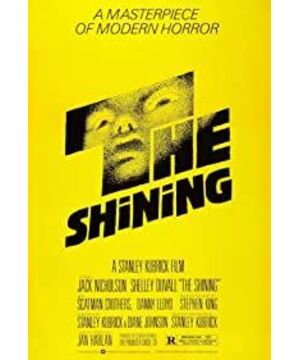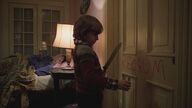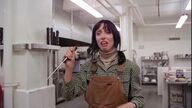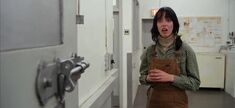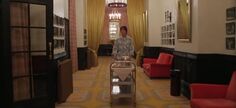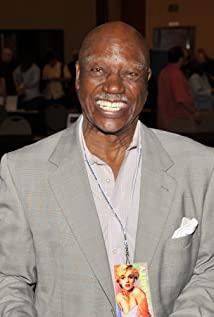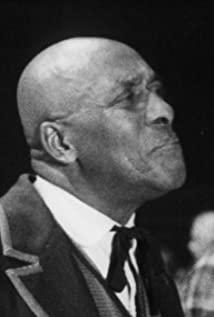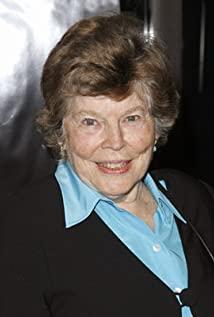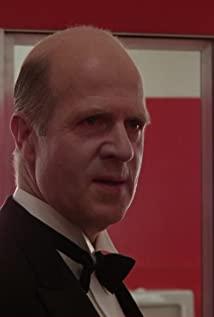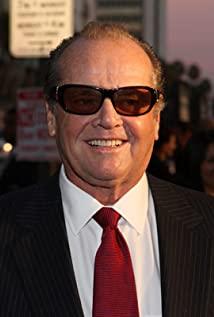By Sven Mikulec & Vicente Molina Foix (cinephiliabeyond.org)
Translator: csh
The translation was first published in "Iris"
During Kubrick's work on The Shining, Stephen King publicly expressed a certain skepticism. What he wanted to question was whether Kubrick and the actors he chose were really the best people to adapt the novel. Still, Kubrick is certainly not shaken by this initial suspicion. He put his very creative brain into the work and spared no effort in the creation of this work. The main photography work in the film took a whole year. Kubrick constantly tweaked the script and came up with new ways to handle the material, leaving the entire crew — especially Shelley Duvall, with whom he often quarrelled — on the brink of a nervous breakdown. Jack Nicholson was also repeatedly irritated by him. However, the long hard work paid off, as The Shining is still considered one of the most successful horror films of all time.
In 1980, Vincent Molina Foix interviewed Kubrick at his home. An interview of this kind, rare for the director, is included in The Stanley Kubrick Archives, an ambitious book that focuses on the director with an ardent fan base, underscoring the His relentless pursuit of the perfect movie.
Reporter: What do you like about Stephen King's The Shining?
Kubrick: Well, this novel was sent to me by one of Warner Bros. executives, John Carley. Of the materials handed to me, this is the only thing I feel good about, or like. I think when I read most of the material, after I've read a certain number of pages, I just put them down and don't continue to waste my time. But The Shining fascinated me, and I found it to be very interesting in its plot, ideas, and structure, and more imaginative than anything I've read of this genre. It seems to me that people could make a great movie about it.
Reporter: Do you know Kim's previous novels?
Kubrick: I don't know. I've seen the movie Carrie, but I haven't read any of his novels before. In my opinion, Kim's great ability lies in the construction of the plot. He doesn't seem to have much pursuit of writing style, I just think, he probably just wrote the text once, read it again, and finally sent it to the publisher. He seems to be most interested in creating, and I think he knows that too.
Reporter: But before you got that novel, did you ever think about making a horror movie?
Kubrick: No. When I make a movie, I never have another project in my mind. I never work on two projects at the same time. When I read a book, I feel like my only consideration is that I wish I could make a different work, I don't want to repeat my past. For example, I don't know what I want to do right now. I wish I knew it would save a lot of time.
Reporter: In previous work, you've dealt with specific genres (sci-fi, thriller, war, etc.), and you'd work within the usual conventions of those genres. Were you drawn to The Shining because it gave you an opportunity to explore new genres in your career?
Kubrick: I think the only law of this type is that you shouldn't try to explain it. Instead of trying to find a neat answer to what happened, the purpose of the film is to create an eerie feeling. Freud wrote in his essay on "weirdness" that weirdness is a very special feeling, the only context in which art can express this weirdness more powerfully than life, and I think he The conclusion is very instructive. It doesn't help much with screenplays, but it can give us insight into the genre in interesting ways. I also read an article by the great guru HP Lovecraft who said you should never try to explain what happened. As long as something happens that sparks the imagination and inspires a sense of mystery, anxiety, and fear, that's enough. As long as there is no obvious internal contradiction in itself, it can be completely based on the imagination (imagined ideas and surprises, etc.), and can work completely in the field of imagination. I also think that audiences will ultimately appreciate the ingenuity of this story. As the story progresses, they obviously want to know what will happen. You can't anticipate the main development of the story when it's almost over, but you also don't feel like you've been fooled, deceived, and in doing so, the audience will experience a huge sense of satisfaction.
Reporter: Who was Diane Johnson who wrote the script with you?
Kubrick: She's a good novelist, maybe five or six books. I was intrigued by one of the books and started talking to her about the work. Later, I learned that she taught a class on Gothic fiction at the University of California, Berkeley. It seemed like it would be fun to write a script with her, and it was. This is her first script.
Reporter: The film is a considerable adaptation of the original novel. Many characters are appropriately simplified. The supernatural, pseudo-psychological stuff was all but wiped out, and even the basic horror elements were weakened. But it's all about improving the novel for me. Of course, there are still many who believe that this film can be seen as pure horror. But are you trying to break away from the relatively traditional norms of the genre and try to construct something different?
Kubrick: You said that I cut out a lot of the horror in the book, and I don't agree with that. In fact, I think the movie is more terrifying than the original, except for the moment when the child is playing in the snow and sees the blood splattered on the wall and hears the tinny noise from the giant drain. People say that. For example, no one is killed in the book.
Reporter: Yes, but you removed the in and out of those animal figures in the bush gardens...
Kubrick: That's all. When the black chef Halloran finally came on, the animals tried to stop him, but I just removed that episode.
Reporter: You also highlighted the relationship between the protagonists and their sense of isolation in the tavern, and Jack's frustration as a writer... All of this is of course crucial in the movie, but not in the book.
Kubrick: I think in the original, King tried to add a lot of what I would call "pseudo-character", "pseudo-psychology". But I am sure that the essence of the characters he put into the novel has been preserved in the film. The only change is that we've made Wendy more believable in her role as mother, wife. What I want to show is that the mental state in the story, even in the novel, doesn't change much. If you feel like the characters are simplified, then obviously they've also become clearer and less cluttered. Generally speaking, something simplified is better than clutter. When I talk about simplification, I mean "clarity". The character Jack, for example, has a fairly tedious, family-life thread in the original. But in the film, those clues are gone, which is a move in the right direction. King devotes a very "burdensome" section to Jack's alcoholism as a father, and he's also very caring for Wendy's mother, and I don't think the audience will be very interested in that. To me, these things are irrelevant. Of course, you could also put in a ton of psychological clues trying to explain how Jack's character came about, but I don't think it's a big deal.
Reporter: Indeed. While reading this novel, I always felt like he was trying to explain - why so many horrible things happened. I think this is wrong, the main strength of this story is its ambiguity. Also, you avoid mentioning Edgar Allan Poe in the book, especially his Red Death mask. In fact, your film is completely free of Poe's influence, and I think you're closer to Borges, especially your ending. In my opinion, this is a major adjustment to the novel.
Kubrick: The biggest adjustment is actually in the last thirty minutes of the film. Because Kim's climax is really just a confrontation between Jack and Danny, and Danny says something like "You're not my father," and then Jack turns around and walks over to the boiler, and the hotel explodes. The most important adjustment that Diane Johnson and I made was the ending. We've shifted focus along the kind of path you just described. As far as Jack's father and family background are concerned, several clues in the film are almost the same. When Wendy tells Doctor Jack how she broke Danny's arm, you can find her trying to look normal, but you realize that something terrible must have happened. Or rather, when manager Ulman asked Jack, "Would your wife and children like it?" you could see the deep meaning in his eyes, he was thinking, "How irrelevant this question is!" Then he smiled and said, " They'll love it." I would say, I feel like we arranged a lot of tiny details, we at least provided some subliminal information, and that's what Kim was trying to convey. I think he might be a little concerned about the novel's qualifications as "literature," and his references to Poe and the stuff about the "Red Death" are fine, but they don't seem very necessary to me. He seemed to want everyone to realize that he was creating a worthy literary genre.
Reporter: How do you usually work with actors? Would you like to talk about their improv?
Kubrick: Of course. I've found that no matter how carefully you write a scene, when you start rehearsing for the first time, something completely different always seems to come up. You realize that there are some interesting ideas hidden in this scene that you never had, or that you thought were interesting, and become very boring. You may also find that your thoughts are not evenly weighted. Some things are too obvious, or too inconspicuous. So I often rewrite scenes during rehearsals. I think you can use this way to maximize an actor's ability, or even an actor's weakness. If they don't do something, or they obviously can't do something (I have to say, that doesn't exist in The Shining because they're so awesome), you suddenly realize, you Discover ideas and possibilities that were never there before.
I do sometimes find directors who work in a different way than I do. They can write a few scenes and find that they really work. I'm impressed with it, but I can't do it, it's probably a flaw in my screenwriting. But I do think that no matter how good a script looks on the page, the moment you actually start shooting, when you get together with the actors, you'll be very clear that if you stick to what you've written, you can't Take advantage of these possibilities. I also found that when you actually start rehearsing a scene to make it worthwhile, you can't get close to the deepest core of the scene if you're just thinking about the camera and the scheduling.
Reporter: You always try to have complete control over every step of the filmmaking process. I've always been a little curious about this nit-picky control. It certainly has to do with the artistic direction of your film, but the focus is still on The Shining. Do you manipulate every aspect of the film?
Kubrick: For example, in this film, Roy Walker, the artist, spent a month traveling all over the United States, shooting hotels, apartments, and a series of things that can be borrowed. We must have shot hundreds of locations. We will then have the draftsman draw the set based on the photos we like. But we'll keep the original proportions and let's make an accurate set, not something like that. When the photo was taken, he would stand there with a ruler and get the scale for everything, which was very important. Take the apartment they live in at the beginning of the film, for example, their rooms are small and the corridors are narrow. There is a strange window in the boy's bedroom, about five feet high.
Well, everyone sees things in real life that aren't right, and trying to "design" them would be silly. So, those apartments and their residences in hotels are very ugly and lack of design, if there is no designer, that kind of architecture would be made, but these things that have a sense of reality have to be preserved. So, we had to replicate those grand rooms carefully, but there are things that do have a sense of design, and we're going to replicate those. But instead of having artists try to design a hotel (I think it's almost impossible to make a hotel look like a stage set, an opera set), we try to keep the real thing.
I base it on something completely real, which is very important. It's like we're lighting a documentary with natural light, we don't use the dramatic, fake lighting that's the usual horror movie. I compare it to the way Kafka or Borges wrote, you know, if you use a minimalistic, non-baroque style, we can approach this fantastical in a very everyday, mundane way thing. The sets are very realistic and the architecture is very boring, which I think is very important. This means, we can choose more compositions and perspectives, but it has to look real. Every detail in these scenes is derived from photos of real locations, which we reproduced with great care. The exterior of the hotel is based on an existing hotel in Colorado, but the interior is based on many different locations. For example, the red toilet originates from a hotel in Phoenix, Arizona, where the artist discovered this Frank Lloyd Wright-designed toilet. The colors and other details are the same. Why try to design a toilet if you can find a toilet that is proportioned, real, and interesting?
If you want to build a set, it is crucial that you leave open the possibility of simulating natural light. For example, all installed chandeliers have to use a very special wiring pattern, each bulb is 1000 watts, but the voltage is relatively low, so they are bright, but also give a warm light. You might notice that the colors and everything else in the hotel is warm - that's because we supply 1000 watt bulbs with lower voltages. On a huge set, we could simulate sunlight through the window with a 100-foot-long, 30-foot-tall translucent clapboard, right? There are about 750 1,000-watt bulbs behind the partition, so the soft light coming in from the windows does become "sunlight", which is really an artificial sky. So the daytime in the film looks like the real thing. We had to think about these situations very early on, they were actually part of the set, and the lighting had to be integrated early in the set design.
Reporter: Are you already envisioning a new project?
Kubrick: No, I'm eagerly awaiting new concepts.
View more about The Shining reviews


